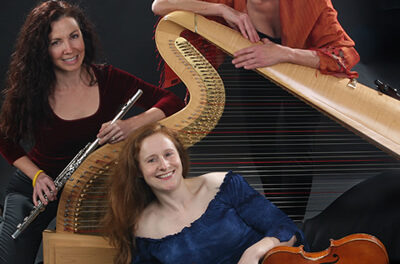Pēteris Vasks? Our horizons are becoming broader, but Vasks, though he has a respectable number of works recorded on disc by now, is still not a household name. I first heard his works on a Soviet-era LP where they were paired with pieces by such luminaries as Grinups and Zemzars (still obscure in the West), and have been a fan ever since. Vasks (Latvian, b. 1946) was the center of an in-drawing and extraordinary program by the Orchestra of St. Luke’s, presented at Memorial Hall by Carolina Performing Arts, notable for the absence of any of the usual suspects in orchestral programming, or even of the usual nationalities represented (Germany, Italy, France). The program stayed very much within a limited emotional and expressive range, one that you might describe as spiritual, monastic, ascetic, and perhaps strangely appropriate for apocalyptic times such as we are living in. The music called to mind the famous Stages of Grief of Elisabeth Kübler-Ross, in particular stages four (depression) and five (acceptance). Acceptance, yes, but only after a harrowing emotional journey.
The program opened with the striking image of a silent orchestra on a dark stage, with a single solo flute (Elizabeth Mann) in a spotlight, for Vasks’ “Landscape with Birds,” an avian fantasy with multiphonics (the flutist sings/hums while playing) and flutter-tonguing which was almost too long for its materials. It was masterfully played. The Cantabile (for string orchestra) by Vasks followed – beautiful, moving, with a limited tonal palette (an extended minor chord), and shape given by the composer’s manipulation of texture and divisi in the strings.
“Fratres” (“Brothers”) by Arvo Pärt followed, a widely popular work which exists in various versions. Here we heard the arrangement for wind octet and percussion. The static fifths with circling chromatic harmonies above evoke both medieval polyphony and something vaguely oriental. The narrative of the piece goes nowhere in particular, and doesn’t need to, like a monk circumambulating a courtyard.
Interestingly, it was the piece by Japanese composer Toru Takemitsu, “How Slow the Wind” which created a sound world closest to that of the Central European classics, quite tonal, but with expressive effects reminiscent of the early twentieth century. Alan Hovhaness, an American of Armenian descent, born in Somerville, Massachusetts, was represented by “Khrimian Hairig,” another essay in monastic style, here set for trumpet and orchestra (the work is named for the priest who became Patriarch of Istanbul and Catholicos of all Armenians in the later 19th century).
“The Unanswered Question” of Ives, with its amazingly modern combination of different soundscapes, was highly appropriate to the context (with each unvarying question from the trumpet, one could imagine what the (missing) text is that Ives intended). After a concert with dynamics ranging from p to ppp, the closing work, “Message,” by Vasks, moved to an earlier Kübler-Ross stage (number two, anger), with stormy strings evoking what the composer describes as a “battle between good and evil.”
St. Luke’s offered Triangle audiences an experience beyond the ordinary, with fine and evocative performances, and the orchestra, led by Alan Pierson, was rewarded with a long and enthusiastic standing ovation by the audience. An evening to remember.











